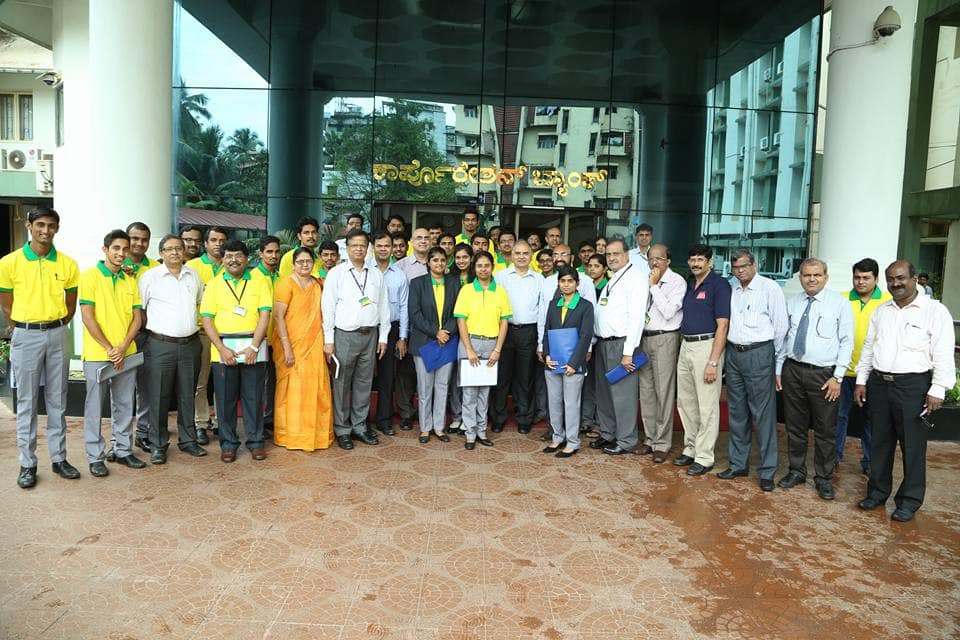Improving the quality of people within a community yields numerous advantages across various domains | Global TV
Enhanced education attainment and skill development foster a more knowledgeable and adaptable workforce, driving economic growth and innovation. Increased social cohesion and trust within communities lead to stronger social bonds, greater cooperation, and improved resilience in the face of challenges. Better health outcomes result from improved access to healthcare services, healthier behaviors, and support networks that promote well-being. Moreover, elevated levels of civic engagement and ethical conduct contribute to a more vibrant democracy and a more just and equitable society. Ultimately, investing in the quality of people yields a multitude of benefits, including stronger economies, healthier populations, and more inclusive and cohesive communities, thereby enriching the fabric of society as a whole.

Is there any method to measure quality of people?
Measuring the quality of individuals or groups of people is a complex and multifaceted task that involves various subjective and objective factors. While there is no universally accepted method to measure the overall quality of people, there are some approaches and frameworks that attempt to assess different aspects of individuals or populations:
Surveys and Questionnaires: Surveys and questionnaires are commonly used to collect data on people’s perceptions, attitudes, behaviors, and demographics. These tools can be designed to assess specific aspects such as happiness, satisfaction with life, well-being, health, education, employment, and social relationships.
Psychological Assessments: Psychological assessments and standardized tests are used to measure cognitive abilities, personality traits, emotional intelligence, and mental health indicators. These assessments are often conducted by trained professionals using validated instruments.
Health Indicators: Health indicators such as life expectancy, mortality rates, disease prevalence, and access to healthcare services are used to assess the overall health and well-being of populations. These indicators provide insights into the physical health status of individuals and communities.
Economic Indicators: Economic indicators such as income levels, employment rates, poverty rates, and socioeconomic status are used to measure the economic well-being and standard of living of individuals and households. These indicators reflect access to resources and opportunities.
Social Indicators: Social indicators such as literacy rates, education attainment, social capital, and participation in community activities are used to measure social well-being and social cohesion. These indicators assess individuals’ participation in society and their ability to engage with others.
Quality of Life Indices: Quality of life indices and frameworks combine various indicators across multiple domains (e.g., health, education, income, environment) to provide a holistic assessment of individuals’ well-being. Examples include the Human Development Index (HDI), Gross National Happiness (GNH), and OECD Better Life Index.
Ethical Considerations: It’s important to note that measuring the quality of people raises ethical considerations regarding privacy, consent, bias, and stigmatization. Any attempt to measure or assess individuals should be done with sensitivity and respect for their dignity and rights.
While these methods provide insights into different aspects of individuals’ lives, no single measure can capture the complexity and richness of human experience. Moreover, perceptions of quality can vary widely depending on cultural, social, and individual factors. Therefore, any attempt to measure the quality of people should be approached with caution and awareness of its limitations.
Building Social Capital

Improving social capital within communities and societies is paramount for fostering cohesive and resilient social structures. Social capital serves as a foundation for trust, cooperation, and collective action, enabling communities to address shared challenges more effectively. Strong social networks and bonds facilitate the exchange of information, resources, and support, enhancing individuals’ and groups’ ability to navigate complex social, economic, and political landscapes. Additionally, high levels of social capital promote inclusivity and reduce social disparities by providing marginalized groups with greater access to opportunities, resources, and social support networks. Moreover, robust social capital fosters a sense of belonging and shared identity, contributing to increased civic engagement, participatory decision-making, and community empowerment. By investing in social capital, societies can build stronger, more resilient communities that are better equipped to address emerging challenges, promote social justice, and achieve sustainable development goals.
What is social capital?
Social capital refers to the networks of relationships, social norms, trust, and reciprocity that exist within a community or society. It encompasses the social connections and bonds between individuals, groups, and institutions, as well as the shared values and norms that facilitate cooperation and collective action.
Key components of social capital include:
Social Networks: Social capital is built through the connections and interactions between individuals and groups within a community or society. These networks can be formal (such as professional associations or community organizations) or informal (such as friendships, family ties, or neighborhood relationships).
Trust and Reciprocity: Trust is a fundamental aspect of social capital, as it underpins cooperation and collaboration among individuals. Social capital fosters a sense of trust and reciprocity, where people are willing to help and support each other based on mutual understanding and shared norms.
Norms and Values: Social capital is shaped by the norms, values, and cultural practices that guide social interactions within a community. These norms often promote cooperation, solidarity, and collective action, contributing to the cohesion and resilience of the community.
Social Cohesion: Social capital strengthens social cohesion by fostering a sense of belonging, identity, and solidarity among community members. Strong social ties and shared experiences help build resilience and enable communities to respond to challenges and crises more effectively.
Social capital plays a crucial role in various aspects of society, including:

Economic Development: Social capital can facilitate economic growth by promoting entrepreneurship, innovation, and access to resources. Strong social networks and trust-based relationships can lead to increased cooperation and collaboration in business and economic activities.
Health and Well-being: Social capital has been linked to better health outcomes and well-being. Supportive social networks and community ties provide emotional, instrumental, and informational support, which can buffer against stress, improve mental health, and encourage healthy behaviors.
Education and Learning: Social capital can enhance educational outcomes by providing opportunities for learning, mentorship, and peer support. Strong social ties within schools and communities can create a supportive environment for students and encourage academic achievement.
Governance and Civic Engagement: Social capital is essential for effective governance and civic engagement. Trust and cooperation among citizens, institutions, and policymakers are vital for democratic participation, social accountability, and the provision of public goods and services.
Overall, social capital contributes to the resilience, cohesion, and well-being of communities and societies by fostering social connections, trust, and collective action. It is a valuable resource that enhances individuals’ and groups’ ability to





